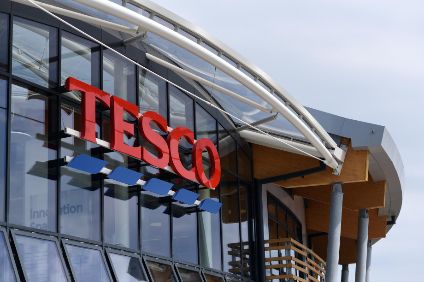
Tesco has teamed up with The World Wide Fund for Nature to devise a measure they say will gauge the environmental impact “of some of the UK’s most popular foods”.
Own-label suppliers of foods including salad tomatoes, Bourbon biscuits and ready-salted crisps will see their products tracked against seven environmental criteria under the “sustainable basket metric”.

Discover B2B Marketing That Performs
Combine business intelligence and editorial excellence to reach engaged professionals across 36 leading media platforms.
Tesco and WWF say their goal is “halving the impact of the average UK shopping basket”. They have set 2030 as “a potential ambition” for that target to be reached.
The benchmarks, which include deforestation, food waste and packaging waste, have been chosen due to what Tesco and WWF said is “their scope and global impact; their irreversibility and urgency; and their direct impact on issues such as climate change”.
The criteria have been weighted, with percentage scores totalling 100%. Climate change has been rated highest, at 25%, with deforestation following at 20%.
Each criteria will have sub-metrics. For instance, “sustainable agriculture” includes considerations such as the percentage of farmers “taking robust action to improve soil health”.

US Tariffs are shifting - will you react or anticipate?
Don’t let policy changes catch you off guard. Stay proactive with real-time data and expert analysis.
By GlobalDataFor each metric, Tesco and WWF have established both a 2018 baseline and a “long-term” target.
Outgoing Tesco CEO Dave Lewis said: “Throughout our partnership, we’ll be carrying out industry-leading work to make food production more sustainable, including sourcing commodities like soy and palm oil from verified zero-deforestation areas, and improving soil health and water usage on farms in the UK.”
The retailer plans to use the metric across more of its products, with the criteria applicable to “a wide range of products” not included in the basket. The criteria related to lettuce, such as sustainable agriculture and food waste “will also relate to other similar vegetables such as spinach, chard and other salad leaves”, Tesco said.
Tanya Syeele, the CEO of WWF in the UK, said the new system would allow Tesco “to fully understand the end-to-end sustainability impact of some of the most popular foods”.
She added: “We want other retailers to take a similar approach and come together to ensure a more sustainable approach to food production.”





